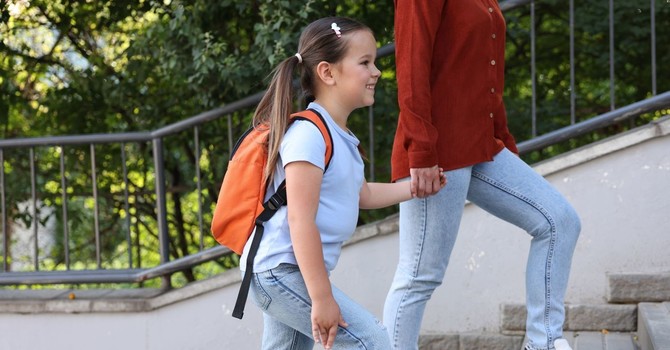In sports, medicine, and even everyday life, we often fall into the trap of believing that constant, repetitive practice—called massed practice—is the key to mastery. However, research shows that this belief is a myth. Instead, methods like spaced, interleaved, and varied practice led to deeper, longer-lasting learning. Let’s explore how these strategies work across various fields, from sports to education.
Testing and Sports: Beyond Repetition
We intuitively understand the value of testing in sports—it’s practice-practice-practice. But the quality of practice matters more than sheer repetition. A classic study had eight-year-olds practice tossing bean bags into buckets. One group practiced from three feet away, while another practiced from both two and four feet but never from three feet. When they were all tested on tossing into a three-foot bucket, the group that practiced at varied distances performed far better. This study illustrates that varied practice fosters flexibility and adaptability, key skills for success in dynamic environments like sports.
The Myth of Massed Practice
Many of us, from athletes to students, believe that intense, focused practice leads to faster learning. Yet, while massed practice can provide a temporary boost, it leads to rapid forgetting. For example, cramming for an exam might help you pass the test, but most of that information fades quickly. Real mastery comes from spacing out learning, allowing time for mental consolidation.
Spaced Practice: The Surgical Residents Example
One study involving 38 surgical residents illustrates the power of spaced practice. These residents were trained in microsurgery, with one group completing all four lessons in a single day, while another spaced their lessons a week apart. A month later, those who spaced their practice outperformed their colleagues across all measures, including time to complete surgeries and error rates. Spacing practice provides the brain with time to consolidate new skills and embed them into long-term memory, resulting in better performance when it matters.
Interleaved Practice: College Students and Geometry
Interleaving, or mixing up the types of problems or skills during practice, can feel slower and more challenging, but it’s highly effective. In a study on geometry, two groups of college students practiced calculating the volume of different geometric solids. The group that practiced clustering problems by type performed better initially. However, when tested a week later, those who had practiced with mixed problems outperformed the others by a remarkable margin. This shows that interleaving forces learners to differentiate between diverse types of problems and think more critically about solutions.
Varied Practice: The Beanbag Study
Varied practice, where learners practice in different contexts or under different conditions, also leads to stronger learning. The beanbag study mentioned earlier highlighted this. Students who practiced throwing into buckets at varying distances did better at the test distance (three feet), even though they never practiced at that specific distance. This principle can be applied across fields—from sports to problem-solving—where learning to adjust to new situations is key.
Developing Discrimination Skills: Identifying Artists and Birds
Interleaving and varied practice help develop discrimination skills, allowing learners to differentiate between problems or scenarios. One study had students practice identifying artists by studying multiple examples of their works, either grouped by artist or interleaved with works from other artists. Surprisingly, students who studied in an interleaved format performed better on tests. The same principle applied to learning bird classification, showing that interleaving improves learners' ability to categorize and discriminate between different species.
Improving Complex Mastery: Medical Students
For medical students, combining varied and spaced practice helps them navigate complex, real-world scenarios. Studies have shown that students perform better on exams and in real-world settings when they practice diagnosing and treating patients over time, rather than through cramming. In addition, the process of reflection—regularly reviewing what worked, what did not, and how to improve—helps deepen understanding and mastery.
From tossing bean bags to mastering surgery, the science of learning reveals a consistent truth: massed, repetitive practice may feel productive, but spaced, varied, and interleaved practice leads to lasting mastery. Whether you are an athlete, a student, or a professional, these strategies can enhance your ability to retain and apply knowledge in the real world. By embracing these methods, you not only learn more effectively but also build the skills to adapt and thrive in complex, ever-changing environments.
Eckert Centre is staffed with educational psychologists in Calgary, Alberta who specialize in teaching students of all ages the science of learning. Academic coaching services can support students of all ages to make what they are learning stick!
For more insights, information, or to book an appointment, please visit www.eckertcentre.com and click the appointment button. You can also reach our team in three other convenient ways: 1) complete the submit form on our website; 2) email us at info@eckertpsychology.com; or 3) call and speak to our receptionist every business day at 403-230-2959. Yes, a real human will answer your call.
Madison is a Psychology Assistant & Digital Marketing Assistant at Eckert Centre. She's currently deepening her understanding of psychology at the University of British Columbia. Madison brings her passion for mental health to our community through her writing. As our blogger in residence, her contributions offer a fresh perspective and shed light on the importance of mental wellbeing and school psychology. We are grateful for her eloquent words and the insights she shares on her journey towards cultivating a "Wise Self."
Works Cited
Brown, Peter C., Henry L. Roediger III, and Mark A. McDaniel. Make It Stick: The Science of Successful Learning. Belknap Press of Harvard University Press, 2014.





